The below is an excerpt from a recent edition of Bitcoin Magazine Pro, Bitcoin Magazine’s premium markets newsletter. To be among the first to receive these insights and other on-chain bitcoin market analysis straight to your inbox, subscribe now.
Record Downward Difficulty Adjustment
The mining industry continues to take a beating as rising energy inflation, debt burdens and depressed bitcoin prices take their toll. At the end of November, we saw a 13.1% decline in hash rate from all-time highs. However, of the major hash rate declines since 2016, that’s still relatively small compared to the handful of down periods over 15% during that time.
The latest 7.32% downward difficulty adjustment is a direct response to all of that hash rate going offline. As we stand today, the hash rate is right around 250 EH/s and down 7.84% from its all-time high of approximately 273 EH/s. This is the largest downward difficulty adjustment we’ve seen since July 2021, when we saw a series of downward difficulty adjustments following the Chinese mining ban. This should bring some temporary relief to current miners, but it’s too early to say if this trend in declining hash rate has already concluded.
Even with the latest drawdown in hash rate, we’re not seeing announcements come from major public miners. Most public miners’ hash rate is either flat or is growing over the last month.
From those who have provided monthly production updates so far, bitcoin holdings are largely rising from the biggest three treasuries across Riot, Marathon and Hut 8 accounting for 27,579 bitcoin. Bitfarms sold a meaningful amount from their treasury which is likely related to paying down their current debt facilities.
In bitcoin terms, miners’ stock performance continues to fall this year when looking at year-to-date returns versus bitcoin performance. The hash price bear market is alive and well, which has been a core thesis for us when evaluating the current prospects of investing in public miners versus bitcoin. Any miner outperformance in bitcoin short-term has proven to be an opportunity in the market to reprice the equity lower.
Looking at the market caps of a proxy basket of six public bitcoin miners shows just how much value has been wiped out from 2021. After a 452% rise in value to its November 2021 peak of $19.1 billion, the market wiped out 90% of value in less than a year.
While the worst of the drawdown of public miner market capitalizations and hash price (miner revenue per tera hash) has already taken place, we expect that the tough conditions can last for a sustained period of time, squeezing many market participants along the way. The recent downward difficulty adjustment brought about some relief, but it is barely sufficient for many miners who purchased the bulk of their machines in 2021, expecting $30,000 as their “worst-case scenario.”
Throw in an environment where global energy prices and interest rates have skyrocketed and many operations are facing immensely difficult circumstances — particularly hosting facilities where companies serve as intermediaries for customers looking to reap the benefits of mining bitcoin. The elephant in the room for the state of the mining industry is the reality that some of the industry’s biggest hosting facilities are either already bankrupt, teetering on the edge of bankruptcy or are completely out of deployable hash rate for idle ASICs.
We will be intently watching hash rate and the state of the mining industry going forward. Although the industry has been bludgeoned over the course of 2022, we suspect it isn’t out of the woods quite yet.
The beauty of bitcoin and capitalism is that only the strong will survive. Regardless, blocks will continue to be mined every approximately 10 minutes.


Relevant Past Articles:
Credit: Source link




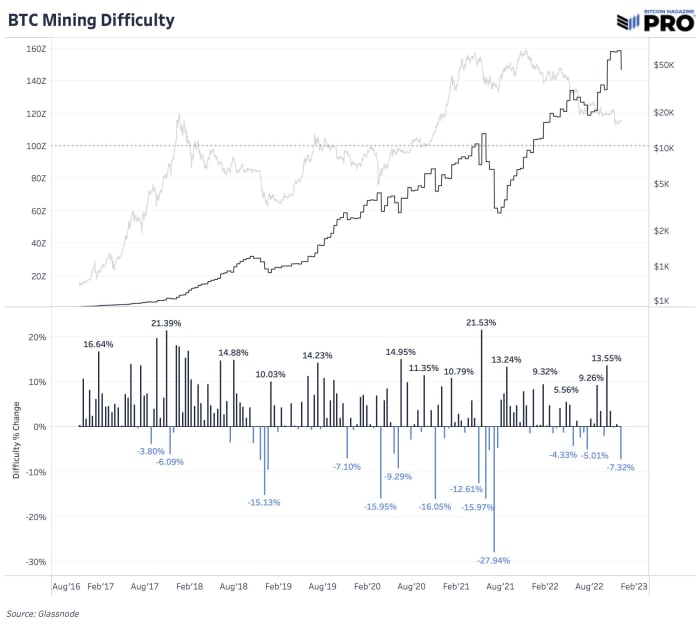
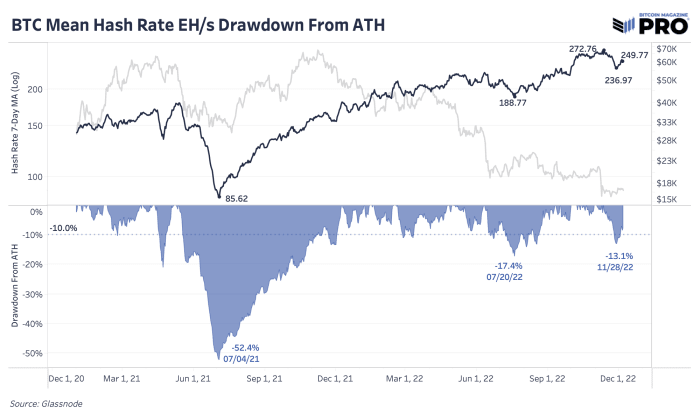
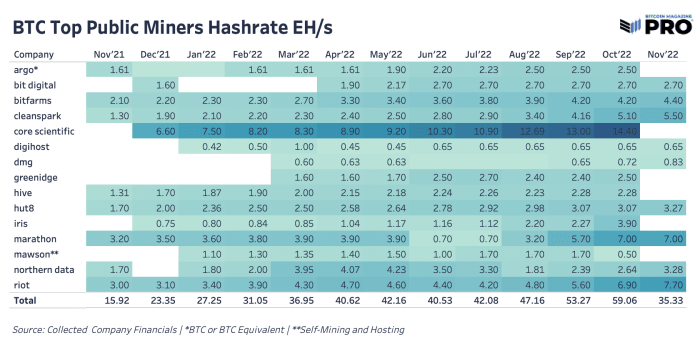
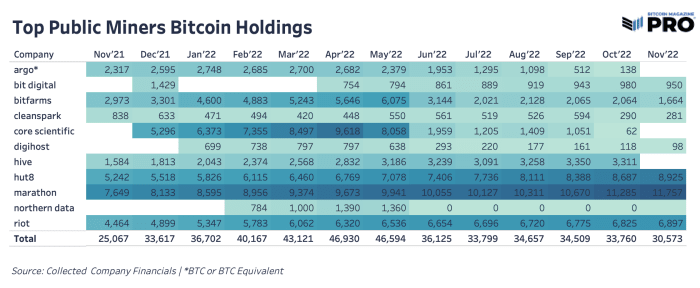
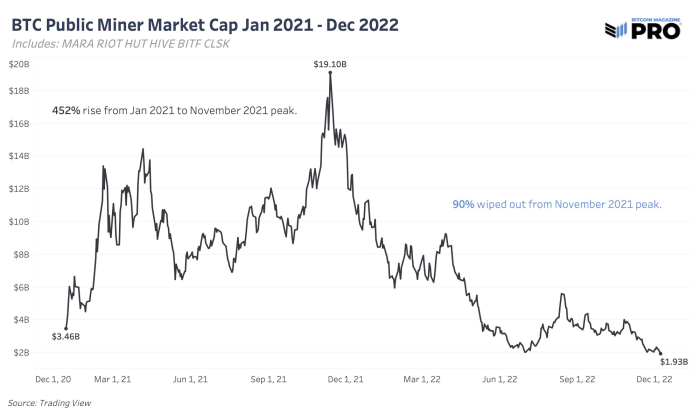


















 Bitcoin
Bitcoin  Ethereum
Ethereum  XRP
XRP  Tether
Tether  Solana
Solana  USDC
USDC  Dogecoin
Dogecoin  Cardano
Cardano  Lido Staked Ether
Lido Staked Ether  TRON
TRON  Wrapped Bitcoin
Wrapped Bitcoin  Wrapped stETH
Wrapped stETH  Chainlink
Chainlink  Avalanche
Avalanche  Sui
Sui  Stellar
Stellar  Litecoin
Litecoin  Toncoin
Toncoin  Shiba Inu
Shiba Inu  Hedera
Hedera  LEO Token
LEO Token  USDS
USDS  Hyperliquid
Hyperliquid  Polkadot
Polkadot  WETH
WETH  MANTRA
MANTRA  Bitcoin Cash
Bitcoin Cash  Bitget Token
Bitget Token  Ethena USDe
Ethena USDe  Wrapped eETH
Wrapped eETH  Uniswap
Uniswap  Monero
Monero  NEAR Protocol
NEAR Protocol  Pepe
Pepe  WhiteBIT Coin
WhiteBIT Coin  Ondo
Ondo  Aave
Aave  Bittensor
Bittensor  Aptos
Aptos  Internet Computer
Internet Computer  Dai
Dai  Official Trump
Official Trump  Mantle
Mantle  Ethereum Classic
Ethereum Classic  OKB
OKB  Tokenize Xchange
Tokenize Xchange  Gate
Gate  sUSDS
sUSDS  Sonic (prev. FTM)
Sonic (prev. FTM) 
